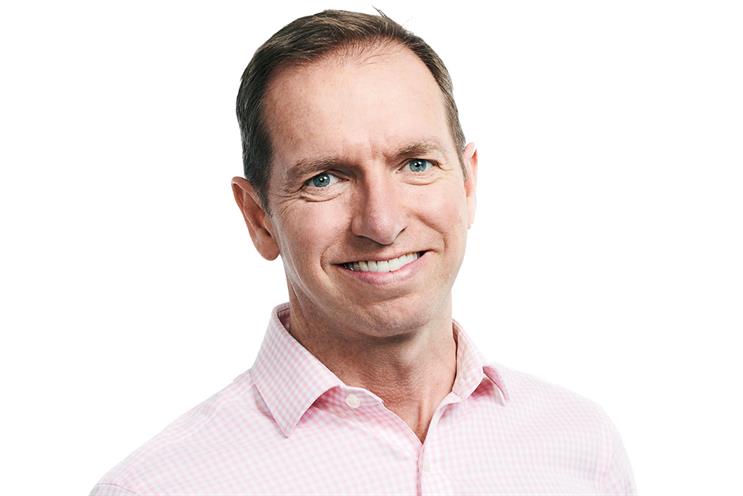We live in a digitally connected world in which information and ideas travel across continents in an instant. In our business alone, we connect over 21.5 million customers with more than 82,300 restaurant partners – it’s a vibrant community and one we have a responsibility to support and help thrive.
As well as the fundamental marketing responsibilities that come with my role, I also feel a huge sense of purpose to effect change when it comes to broader societal issues that impact our community of takeaway restaurants and partners.
Keeping the high street alive
The problems facing the UK high street have made headlines recently, with nearly 1,000 insolvencies across the restaurant industry in 2017.
Businesses are struggling to adapt to changing consumer habits and face increasing cost pressures. Uncertainty about the new business rates regime is weighing on many restaurants, with more than a third feeling they will be negatively affected by it.
The industry is struggling with skills shortages too - almost a quarter of all takeaway restaurants are unable to recruit the staff needed to run their businesses.
As a staple on the high street, Just Eat is passionate about supporting the takeaway sector. Last year, we spearheaded the founding of the British Takeaway 北京赛车pk10 to give the industry a voice to deliver real change. It allows the sector to showcase its growing contribution to our economy.
Creating a genuine customer-centric culture
Everyone talks about wanting to have a customer-centric culture but there aren’t that many organisations that actually do.
Like many marketers, we do all we can to bring the customer to life within the organisation and ensure that whatever department people work in, they always have the customer front-of-mind.
As a marketplace, Just Eat has two distinct customers who are equally important to us: the customers we bring to our platform and the restaurants we connect them with. Ensuring that we have both these constituents in our sights with every decision we make is key to our continued growth.
Plastic not so fantastic
Like many businesses, we’ve been thinking about what role we can play in reducing the amount of excess plastic in circulation. Many of the plastics polluting our oceans are by-products of food and drink consumption.
As an online food delivery business, we’re perfectly placed to use our influence to drive more environmentally-friendly behaviour among our restaurant partners and customers and we have really pushed this forward this year.
As a marketer I know that I can’t solve every problem, but by working with our partners and suppliers, we’ve been able to support real innovation across the sector. We’re helping our customers opt out of excess plastics and are funding research and development to create sustainable packaging solutions for the long-term.
However, on a macro scale, I’m not sure we’re all doing enough to reverse this awful pollution and save our oceans.
Waste not want not
Some food waste is unavoidable, but every year, a third of the world’s food is wasted. As a food business, I felt it was important for us to find ways to tackle this - it’s an issue I’m passionate about. The world produces enough food to feed everyone, but not everyone has enough food.
In the UK, we partner with a wonderful organisation called Food Cycle. They not only collect surplus food from supermarkets, but use it to solve two other societal issues: food poverty and social isolation.
And we’ve led initiatives in our other markets too. In Italy, our Ristorante Solidale project collects donated food and redistributes it to the people that need it most.
Trying to help redress the balance of the haves and have-nots seems insurmountable but, like the plastic issue we face, every step us marketers can take paves the way towards a better world.
A high performing and happy team
I care deeply that my team are as passionate about our brand, our customers and our community as I am. Hiring the best people into the right roles is key to success and managing large teams is the hardest part of any senior role.
To get the best people, it is vital for leaders to build an inclusive culture - to create absolute equality around how we attract, develop and retain talent.
The number of women in technology, for example, is significantly lower than in most other sectors. It’s an industry-wide issue, but one which I’m determined to do our bit to address - we’ve launched a number of programmes aimed at encouraging women and others from under-represented backgrounds to choose tech as a career.
I really believe in not getting in the way of the great people you hire but, equally, ensuring you guide them through the minefield of strategic, creative and managerial decisions to deliver results for both the business and for their own career development.
As marketers, we have the power to make an impact. We have a seat at the top table and the ability to influence culture through our brand values. We have the means to amplify a cause and put the weight of our brand and our relationship with customers behind it.
But with so much information out there, you really have to cut through the noise to find that balance between what you can influence and what you can’t.
Barnaby Dawe is global chief marketing officer at Just Eat and a member of 北京赛车pk10’s Power 100. He was also named The Marketing Society Marketing Leader of the Year for 2017.


